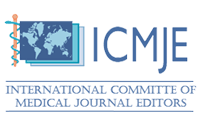Obesity-Related Hormones and Metabolic Risk Factors: A Randomized Trial of Diet Plus Either Strength or Aerobic Training versus Diet Alone in Overweight Participants
Allan Geliebter1,2,3 Christopher N Ochner1,2 Carl L Dambkowski2* and Sami A Hashim2
Affiliation
- 1Department of Psychiatry, Columbia University Medical Center, New York, NY
- 2New York Obesity Nutrition Research Center, St. Luke's Roosevelt Hospital, Columbia University Medical Center, New York, NY
- 3Department of Psychology, Touro College, NY NY 10010
Corresponding Author
Carl Dambkowski, NY Obesity Research Center, St. Luke\'s-Roosevelt Hospital Center, Babcock 1030, 1111 Amsterdam Ave., NY, NY 10025, Tel: 760-861-3094; Fax: 212-523-2878; Email: dambkowski@gmail.com
Citation
Carl D. Obesity-Related Hormones and Metabolic Risk Factors: A Randomized Trial of Diet plus Either Strength or Aerobic Training versus Diet Alone in Overweight Participants (2014) J Diabetes Obes 1(1): 1- 7.
Copy rights
© 2014 Carl D. This is an open-access article distributed under the terms of the Creative Commons Attribution 4.0 International License.
Abstract
There is debate about the additive effects of exercise in conjunction with diet to treat obesity, and not much is known about the differential effects of strength versus aerobic training. This randomized controlled trial examined the effects of diet plus strength training, diet plus aerobic training, or diet only on metabolic risk factors associated with obesity. Eighty-one overweight and obese participants completed the 8-week intervention. All participants received an energy-restrictive formula diet with an energy content based on 70% of measured resting metabolic rate (RMR). Participants assigned to an exercise group trained 3 days/week under supervision. Anthropometrics and fasting hormones were assessed pre- and post-intervention. Mean weight loss (8.5 ± 4.3kg SD) did not differ between groups nor did reductions in BMI or body fat, although the diet plus strength training group showed marginallysignificantgreater lean mass retention (p = 0.059). There were significant improvements in the values and number of metabolic syndrome risk factors (p = 0.004), and decreases in insulin concentrations (p = 0.006) and insulin resistance (p = 0.002), which did not vary between groups. Surprisingly, fastingleptin concentrations increased (p = 0.021) across groups. For men, testosterone increased significantly more in thediet plus aerobic training as compared to the other groups (p = 0.031).As compared to diet alone, the addition of strength or aerobic training did not improve changes in BMI, body fat, or metabolic risk factors although the diet plus strength training group showed a trend toward preservation of lean mass, and the diet plus aerobic group in menresulted in increased testosterone concentrations.












